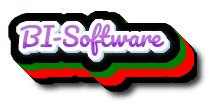In today’s fast-paced and competitive recruitment landscape, staying ahead of the curve is crucial for success. One tool that has revolutionized the way recruiters work is Customer Relationship Management (CRM) software. CRM software is designed to manage and analyze customer interactions, but its applications extend far beyond sales and marketing. In recruitment, CRM software plays a vital role in streamlining processes, improving candidate experiences, and increasing productivity.

What is CRM Software?
CRM software is a platform that enables businesses to manage and analyze customer interactions, including contact information, communication history, and behavioral data. It provides a centralized hub for storing and accessing customer data, allowing businesses to gain valuable insights and make informed decisions. In recruitment, CRM software is used to manage candidate relationships, track applicant data, and automate routine tasks.
Benefits of CRM Software in Recruitment
The benefits of using CRM software in recruitment are numerous. Some of the most significant advantages include:
- Improved Candidate Experience: CRM software enables recruiters to personalize candidate interactions, providing a more tailored and engaging experience. By storing candidate data and communication history, recruiters can respond to candidate inquiries more efficiently and effectively.
- Increased Productivity: CRM software automates routine tasks, such as data entry and email follow-ups, freeing up recruiters to focus on high-value activities like candidate sourcing and relationship-building.
- Enhanced Collaboration: CRM software provides a centralized platform for recruiters to share candidate data, notes, and communication history, promoting collaboration and reducing errors.
- Better Data Analysis: CRM software provides real-time analytics and insights, enabling recruiters to track candidate sources, conversion rates, and other key performance indicators (KPIs).
- Reduced Time-to-Hire: By streamlining processes and improving communication, CRM software helps reduce the time-to-hire, ensuring that top talent is secured quickly and efficiently.
Key Features of CRM Software in Recruitment
When selecting a CRM software for recruitment, there are several key features to consider:
- Candidate Management: The ability to store and manage candidate data, including contact information, resumes, and communication history.
- Applicant Tracking: The ability to track candidate applications, including source, status, and progress.
- Automated Workflows: The ability to automate routine tasks, such as email follow-ups and data entry.
- Reporting and Analytics: The ability to generate real-time reports and analytics on candidate data and recruitment metrics.
- Integration: The ability to integrate with other recruitment tools, such as job boards and social media platforms.
Best Practices for Implementing CRM Software in Recruitment
To get the most out of CRM software in recruitment, follow these best practices:
- Define Clear Goals and Objectives: Establish clear goals and objectives for using CRM software in recruitment, such as improving candidate experience or reducing time-to-hire.
- Configure the System: Configure the CRM system to meet the specific needs of your recruitment team, including customizing workflows and fields.
- Train Recruiters: Provide comprehensive training to recruiters on the use and benefits of CRM software.
- Monitor and Evaluate: Regularly monitor and evaluate the effectiveness of CRM software in recruitment, making adjustments as needed.
Common Challenges and Solutions
While CRM software can bring numerous benefits to recruitment, there are also common challenges to consider:
- Data Quality: Poor data quality can hinder the effectiveness of CRM software. Solution: Establish data validation processes and regularly clean and update candidate data.
- User Adoption: Recruiters may resist using CRM software. Solution: Provide comprehensive training and support, and emphasize the benefits of using the system.
- Integration: Integrating CRM software with other recruitment tools can be challenging. Solution: Select a CRM system with pre-built integrations or work with a vendor to develop custom integrations.
FAQs
- What is the cost of CRM software in recruitment?
The cost of CRM software in recruitment varies depending on the vendor, features, and number of users. Expect to pay between $50 and $200 per user per month. - How long does it take to implement CRM software in recruitment?
Implementation time varies depending on the complexity of the system and the size of the recruitment team. Expect to spend several weeks to several months implementing CRM software. - Can CRM software be customized to meet the specific needs of my recruitment team?
Yes, most CRM software vendors offer customization options, including custom fields, workflows, and integrations. - How secure is CRM software in recruitment?
Reputable CRM software vendors prioritize data security, using measures such as encryption, access controls, and regular backups to protect candidate data. - Can CRM software be used for other HR functions, such as employee onboarding and performance management?
Yes, many CRM software vendors offer modules or integrations for other HR functions, including employee onboarding and performance management.
Conclusion
CRM software has revolutionized the way recruiters work, providing a powerful tool for managing candidate relationships, streamlining processes, and improving productivity. By understanding the benefits, key features, and best practices for implementing CRM software in recruitment, recruiters can unlock the full potential of this technology. Whether you’re a small startup or a large enterprise, CRM software is an essential tool for staying ahead of the curve in today’s competitive recruitment landscape. By selecting the right CRM software and following best practices, you can improve candidate experiences, reduce time-to-hire, and drive business success.
Closure
Thus, we hope this article has provided valuable insights into The Importance of CRM Software in Recruitment: A Comprehensive Guide. We appreciate your attention to our article. See you in our next article!
